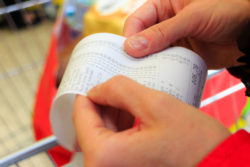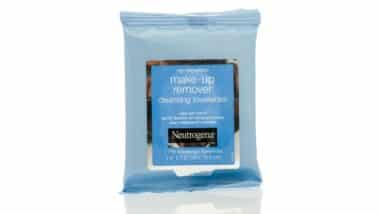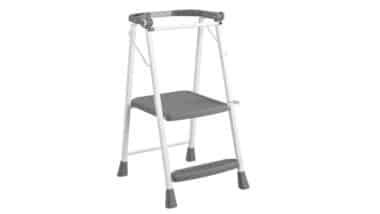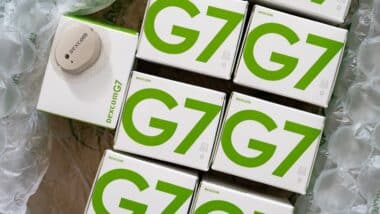
Advancements in technology have made it easier for identity theft to occur. In some cases, even just a small amount of personal information in the wrong hands can lead to someone’s identity being stolen.
One easy way thieves can get hold of personal information is via receipts. As debit and credit card receipts are printed readily at almost every transaction people make, and because they are often discarded, receipts are one point at which information can be easily exposed. If a debit card number from a receipt is exposed, the card owner could become the victim of fraud.
What Prevents Someone From Getting a Debit Card number from a Receipt?
The federal Fair and Accurate Credit Transactions Act (FACTA), a set of amendments to the Fair Credit Reporting Act that were enacted in 2006, reduces the risk of identity theft by limiting the amount of information that can be included on a receipt.
Before 2006, many receipts included the entirety of a debit card number. However, it is now illegal to include more than the last five digits of the debit card number. Businesses are required by law to set receipt printing equipment to omit, or truncate, these digits. Additionally, debit card expiration dates are also prohibited from being printed on receipts. Omitting these digits can help prevent thieves from accessing a debit card number from a receipt.
These restrictions apply no matter the amount of the transaction — even a receipt for a $1 purchase could put your identity at risk for theft.
There are many ways in which a FACTA violation could occur. For example, if the first four digits of a debit card number are printed, a violation still may have occurred even if all other digits are omitted. Printing any digits other than the last five constitute a FACTA violation.
Are There Exceptions to a Debit Card Number Appearing on a Receipt?
Merchants’ business records may contain debit card numbers on them in their entirety. The restrictions apply only to customer copies of receipts — the copies you take home.
Even then, there are limited exceptions that allow more card number digits to appear on a receipt. FACTA restrictions do not apply to instances in which a receipt is handwritten, or in cases in which an imprint of the card is made to record the transaction.
Mortgage Compliance Magazine explains that FACTA’s requirements were phased in gradually. Though the law was passed in 2003, the debit card number requirements did not go into effect until 2006. The Federal Trade Commission says that merchants with older machines were given until Dec. 1, 2006, to comply with the rules and implement the truncation provision of the law. This means that some receipts produced between 2003 and 2006 may still legally contain the entirety of a debit card number.
What happens if a vendor prints too much of a debit card number on a receipt?
Vendors who violate the law may face millions in penalties, especially if the company has thousands of clients. Consumers who discover FACTA violations can pursue up to $1,000 in statutory damages for each violation by filing a FACTA civil lawsuit. A consultation with a knowledgeable FACTA attorney can help consumers understand exactly what their rights are.
Have There Been Any Lawsuits Filed Over FACTA
 Despite the fact that the FACTA law has been in force for a number of years, there are still violations. Consumers have brought lawsuits against merchants because of non-compliance and how it puts their personal financial information at risk.
Despite the fact that the FACTA law has been in force for a number of years, there are still violations. Consumers have brought lawsuits against merchants because of non-compliance and how it puts their personal financial information at risk.
In March 2019, a woman filed a class action lawsuit against an upscale and trendy casual clothing retailer. The plaintiff claimed that the merchant printed not only her name and full credit card number, but also the expiration date – virtually everything an identity thief could possibly need in order to hijack her accounts, apply for new ones and potentially destroy her financially.
Another class action suit, filed in April 2015, named Godiva Chocolatier, Inc. as defendant. The plaintiff alleged that his receipt displayed the first six and last four digits of the card number – again, a clear violation of the Act. The plaintiff further claimed that the violation had been willful, entitling class members to punitive as well as statutory damages in addition to legal fees and court costs.
Another lawsuit regarding FACTA receipt violations was filed in 2017 by a man who claims that the amusement park Six Flags printed too much information on his electronically printed receipt. According to plaintiff Herschel B., he visited Six Flags on July 20, 2017. While he was at the amusement park, he purchased approximately $30 worth of goods with his American Express card. After receiving a receipt for the purchase, Herschel claims that he noticed the receipt included not only the last four digits of his card number, but also the first six digits. Herschel believes that he may have been given FACTA non-compliant receipts by the theme park in the past, but is unable to be sure, as he claims to have thrown away many Six Flags receipts before noticing the extra card numbers.
Six Flags has been hit with multiple FACTA lawsuits. In addition to Herschel’s complaint from 2017, another lawsuit against the amusement park company was also filed by plaintiffs Hugo and Sharon S. from Illinois. The plaintiffs in this case claim that they made several concessions purchases at a Six Flags park in August of the same year. Similarly to Herschel, they noticed that on their receipts for these purchases the first six numbers of their card were visible, in addition to the last four, increasing the risk that their card could be compromised.
Although at the time of filing the plaintiffs acknowledged that their personal financial information had not been stolen from the receipts, they filed their lawsuit on behalf of not only themselves, but any other consumers who may have had their financial information put at risk from FACTA violations on a Great America receipt.
Join a Free Credit Card Receipt Class Action Lawsuit Investigation
If you have a receipt, invoice or contract from a retailer or vendor that includes more than the last five digits of your credit card or debit card number or any portion of the expiration date, you may qualify to file a credit card receipt class action lawsuit.
This article is not legal advice. It is presented
for informational purposes only.
ATTORNEY ADVERTISING
Top Class Actions is a Proud Member of the American Bar Association
LEGAL INFORMATION IS NOT LEGAL ADVICE
Top Class Actions Legal Statement
©2008 – 2025 Top Class Actions® LLC
Various Trademarks held by their respective owners
This website is not intended for viewing or usage by European Union citizens.















5 thoughts onCan Someone Get Your Debit Card Number from a Receipt?
Please add me
Add me
Add me
Add Me
Made a purchase at Chipotle in San Francisco California. They printed out my complete name and entire credit card number.